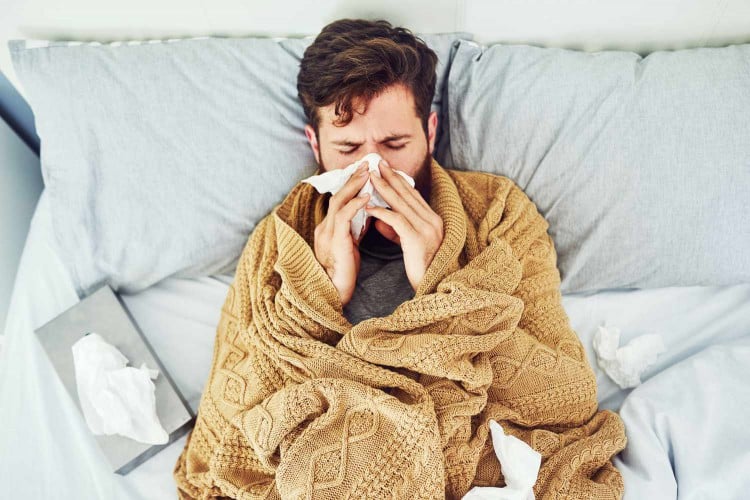What to Know About White Lung Pneumonia
- “White lung syndrome,” or “white lung pneumonia,” refers to when a chest x-ray scan shows white areas on the lungs.
- This term doesn’t describe a new, distinct disease, or any specific set of symptoms.
- Experts recommend pandemic prevention measures—washing your hands, wearing a mask in crowded spaces, and staying home when you’re sick—to avoid catching pneumonia this winter.
Before getting concerned about “white lung pneumonia,” here’s what you need to know.
On November 22, the World Health Organization (WHO) issued a statement about an outbreak of respiratory illnesses in China. The agency said it investigated reports of “clusters of undiagnosed pneumonia in children in northern China.”
On November 29, health officials in Warren County, Ohio issued a press release detailing “an extremely high number of pediatric pneumonia cases being reported this fall.”
Though unrelated, the infections in both Ohio and China are being dubbed “white lung syndrome” or “white lung pneumonia” in some media reports and online forums such as X, formerly known as Twitter.
The name refers to whitening seen on chest X-rays that are often seen when someone has fluid in their lungs, Ed Milder, MD, pediatric infectious disease specialist at Rady Children’s and the University of California, San Diego, told Health.
Pneumonia—an infection of the lungs—typically leads to symptoms such as sore throat, fever, fatigue, and in young children, sneezing, diarrhea, or runny nose.
These current pneumonia outbreaks are not any more dangerous than normal and seem to largely be caused by Mycoplasma pneumoniae and other pathogens that are typical causes of pneumonia.
“These children seem to have a mix of all the usual types of things that can cause pneumonia,” said Milder. “There’s not a new disease, it’s just cold and flu season.”

Getty Images / Dean Mitchell
‘White Lung Pneumonia’ Isn’t a Real Medical Term
“White lung syndrome” or “white lung pneumonia” can be misleading, as they’re not true medical terms.
“It doesn’t actually tell you about how a child is functioning or how sick they are. It’s very nonspecific, and not accurately descriptive,” Ian Michelow, MD, professor of pediatrics at the University of Connecticut and head of the pediatric infectious diseases division at Connecticut Children’s, told Health.
Beyond the fact that the term isn’t very medically helpful, “white lung syndrome” doesn’t even refer to one specific illness or pathogen.
Even the hallmark symptom of “white lung pneumonia”—a chest X-ray scan turning up white—doesn’t hold much weight, as this isn’t automatically indicative of pneumonia.
“It could be an infection, it could be fluid in the lungs from other reasons, it could be damage from smoke inhalation or other toxins,” said Michelow. “It tells you nothing at all about cause.”
Pneumonia Cough: How It Might Sound Different From Other Coughs
Cold and Flu Season May Be Contributing to Global Pneumonia Outbreaks
Ultimately, the pneumonia outbreaks in China and Ohio are part of the worse-than-average cold and flu seasons seen in the last few years.
Milder explained that due to lockdowns and social distancing, people were less likely to contract the viruses that can lead to pneumonia. Now that pandemic restrictions have been lifted, respiratory virus cycles are still abnormal.
In Ohio, the pneumonia outbreak has been linked to adenovirus, and two different kinds of bacteria: Streptococcus pneumoniae, and Mycoplasma pneumonia.
The surge of cases in China is also, in part, attributed to Mycoplasma pneumoniae, respiratory syncytial virus (RSV), adenovirus, and flu.
These are all distinct, but relatively common causes of pneumonia.
The Centers for Disease Control and Prevention (CDC) is currently investigating a possible rise in Mycoplasma pneumoniae infections in the U.S.
Michelow explained that while Mycoplasma pneumoniae bacteria isn’t the only thing causing a surge in pneumonia cases, it could be a driving factor.
“We know that every three to seven years, Mycoplasma does surge in a natural cycle,” he said.
Simply put, the rise can be explained by the “combination of more infection circulating at the same time as less immunity or protection from young children,” said Michelow.
Viral vs. Bacterial Pneumonia: What's the Difference?
Avoiding Pneumonia This Winter
In general, “white lung syndrome” is “nothing to be alarmed about,” said Milder.
That said, pneumonia cases can range from mild to severe, so people should prioritize what they can to stay healthy this winter.
With Mycoplasma pneumonia in particular, cases are often milder—this bacteria is a common cause of walking pneumonia.
“The X-ray looks pretty bad—you can call it a white chest X-ray—but [patients] aren’t that sick,” said Michelow. “They don’t have to be admitted to the hospital, and they can be treated at home.”
With these mild cases, people may not even need antibiotic treatment to get over Mycoplasma pneumonia, he explained.
Of course, there are circumstances where pneumonia cases, particularly in children, can become dangerous. People should always seek medical attention, especially if they’re feeling weak or are having trouble staying hydrated, said Milder.
Most cases of pneumonia are passed when someone comes into contact with the cough of a sick person, Michelow said, so it’s easier to avoid compared to other respiratory illnesses like COVID.
Michelow and Milder agreed that protective measures learned during the pandemic are key for staying safe and avoiding any type of respiratory illness, including the various forms of pneumonia.
These measures include washing your hands, wearing a mask in particularly crowded spaces, staying home when you’re sick, and most importantly, staying up to date on all available vaccines.
“‘White lung syndrome’ sounds dramatic and it sounds very dangerous. But in fact, all it is is a very general description of something which we’ve always known,” said Michelow. “We know how to treat that, and we know how to monitor children for that.”
Still Haven't Gotten Your Flu and COVID Shots? Now's the Time, CDC Director Says











:max_bytes(150000):strip_icc()/Health-GettyImages-1393991928-6eeadfb8e68b43a6b36aba58cc85d4d9.jpg)
